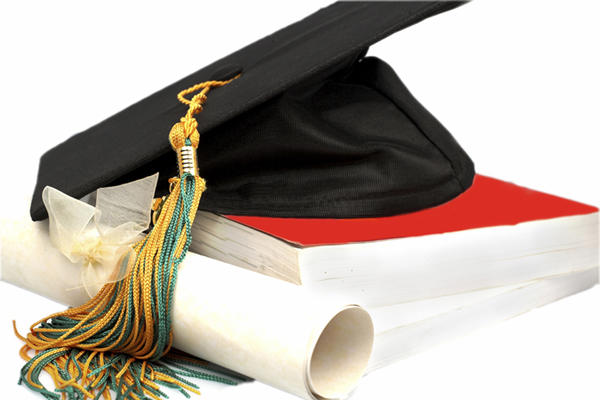In the 1970s and 1980s, the Services began shifting management and academic counseling, related to their Off-Duty Voluntary Education Programs, to a professional staff trained as educators and professional administrators. This was for good reason, at least on two levels.
First, Department of Defense and the Service leadership realized that it was in the best interests of the troops, and the government, to ensure that military personnel participating in off duty education were actually taking the courses applicable to their certificate and degree programs, and not just coursework that needed an additional enrollment or two so the class would make. This ensured the service members were moving positively in the direction of program completion and not wasting time taking classes that were not applicable to their goals.
Secondly, it also ensured the students, and the government, were not paying tuition for courses that were not needed. Tuition assistance budgets were small initially and the education services programs were nursing funds and trying to ensure each expenditure made sense, from the student’s perspective, as well as from the government’s.
To ensure they had experts on staff who fully understood how to best help the service member determine how to make some of the critical decisions they needed to make about which programs to pursue for what reasons, and how best to do that, the Services eventually developed career programs that defined the knowledge, skills, and abilities that their education staffs needed in order to best help in that regard professionally.
For that very reason, government education counselors were expected to meet specific positive education requirements and have a background in counseling and advising, while education officers needed to have that background as well as the administrative and management training and experience needed to manage educational counseling and support staffs and programs. And usually, in addition to having to have met the requisite positive education requirements, careerists within the education services field, similar to their enlisted and officer counterparts in military careers within the Services, had to have experience at the next lower level of performance in order to move into higher levels of responsibility within their careers at the installation level and in regional or major command offices.
In short, the Services realized that generalists who did not understand the professional nuances attendant to the education business were not the right people to most effectively manage and deliver services in this area to service members and families. They realized that delivery of counseling services, and management of education programs, needed the requisite professional background, expertise and experience to do the job right in the best interests of the military students and the government.
That said, we all know that program philosophy and concepts are not stagnant, in almost all, if not all, fields of expertise. Evolution within the education services field was and is no exception. That includes evolution of programmatic concepts within the field as well as technological change and methods of delivery in support of programs integral to delivery of those services to military students. Generalists or poorly trained ‘experts’ can easily shortchange the government and the students they are there to serve.
The Military has always prided itself for remaining ahead of the curve when it comes to ensuring its uniformed personnel always remain current. DoD and the Services spend a large amount ensuring that the tip of the spear, and its support functions, are always ready to perform their mission. That is the main reason the US military is unchallenged in the world … its determination to ensure its personnel are always mission ready, more mission ready than anyone else.
So what has this to do with the education services community? As anyone in any career field knows, and as the military is aware as it relates to their enlisted and officer corps, update education and training is a must if we are not to fall behind our peers in the private sector and end up performing at a far less than optimal level.
Once an officer or enlisted member, as is the case with civilian careerists as well, settle into their new jobs, and learn them, and as the character or expertise of those jobs change, the military leans into the wind to ensure the expertise of their careerist is updated so that it remains as current as possible. This means refresher and update education and training for the military personnel at the tip of that spear. And that also applies to personnel in support of the war effort, both those in uniform and those serving in civilian clothing.
In the case of the education services professionals serving the nation’s military, there is no difference. Leadership at all levels know that we need to keep those skills at peak levels so that military personnel pursuing coursework in support of their military careers, or in preparation for a career after departure from the Service, have the very best educational programs available to them in support of those efforts.
In fact, regulation and practice pretty much dictate the needs of the Services provide for the professional development of their education services personnel. Senior education leadership know this and budget for the ongoing update of their civilian experts. They send them to appropriate academic coursework at colleges and universities. They send them to service-oriented education and training programs applicable to their specific needs. They establish and send key personnel to internships and cross-training opportunities at Service headquarters and DoD to develop the knowledge and skills needed to stay ahead of the curve concerning the laws, regulations, programs and processes concerned, so that they can better deliver and administer the programs for which they are responsible in their home office.
They also send them to professional development opportunities side-by-side with representatives from partner institutions that deliver the actual academic programs to the service member. Normally this is done by sending careerists to local, state and national education conferences and symposia attended by government education personnel, institutional providers, and vendors that familiarize the education community with new technologies that allow military education to stay up with or ahead of the curve.
These professional development opportunities are key to ensuring government personnel compare notes with their peers across services, as well as with institutional and contractor personnel, so that they are armed with the knowledge needed to provide the best and most productive counseling and administrative services to our men and women in uniform.
Key opportunities that ensure government and institutional representatives continue working side by side in the best interest of our personnel include sessions provided, as an example, by state VA offices, state and regional meetings of Advisory Councils on Military Education (ACMEs), and symposia like those provided by the Council on Military Education and Training (CMET), the Council of Colleges and Military Educators (CCME), and the triennial DoD World Wide Education Services Symposium.
ACME meetings are scattered across the year and can be found on the CCME website.





